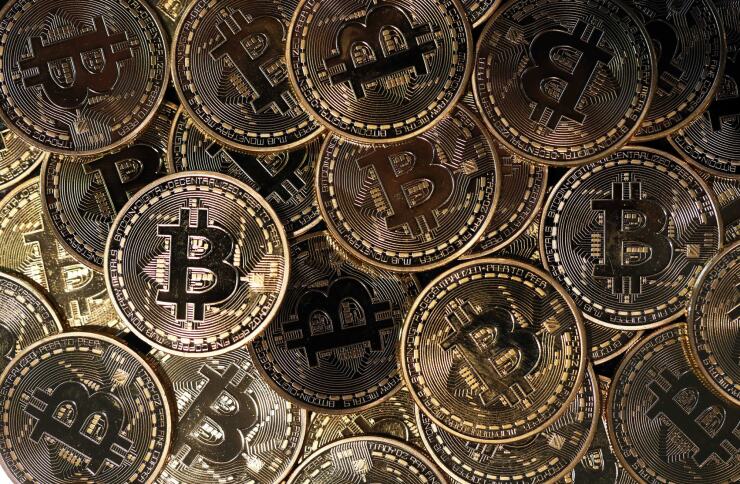Want unlimited access to top ideas and insights?
The information you need to start your day, from PaymentsSource and around the Web:
Tax cut for bitcoin: The Australian parliament has passed legislation to halt "double taxation" on virtual currencies such as bitcoin, a major victory for cryptocurrencies since it levels the playing field with government-issued money. The legislation, which goes into effect July 1, 2018, removes the goods and services tax (GST) on the purchase of digital currency, leaving only the GST tax on the actual purchase of goods and services, reports

The key(board) to lure young people bank to banking: A Tel Aviv startup has finished raising $10 million to expand a smartphone keyboard that lets bank customers access financial services without logging onto a banking app, that latest in a series of plays to use
Fintech chamber of commerce: One of the many
How will virtual coins affect physical coins? The inspector general is warning other government offices to study how cryptocurrencies may impact traditional cash.
From the Web
CBS | Thu Oct 19, 2017 - Police in New Jersey are warning bank customers to be on the lookout for an ATM skimming scam. Howell Township Police said two men have made over 100 fraudulent transactions in Monmouth County, and stolen the debit card numbers of just as many. “These are professionals, not just two guys got together try to scam people. This is an elaborate, complex, international scheme,” Christian Antunez told CBS2’s Meg Baker. They do it with external skimming devices at locations you might think are the safest — your local bank. The Howell branch of the Manasquan bank first noticed that someone smeared something on the security camera lens. “When we started to put everything together we realized that so far here in Howell Township, about thirty to forty-thousand dollars of fraudulent withdrawals,” Antunez said. The accounts were foreign, mostly Canadian. Police recovered a skimmer from the branch in Manasquan in early September. Evidence shows it was in place for three days stealing personal information from dozens of customers.
CNBC | Fri Oct 20, 2017 - Hate shopping and paying bills? Then there could be good news: Soon, everyday devices will be making automatic "invisible" payments, according to one company. Here's the idea: Smart devices, like household electronics or vehicles, will be able to pay for your needs — without you needing to ask for them. Of course, there are major privacy and security concerns with such a technology, but there's also real promise. One example could be a re-imagining of the utility bill where "your devices, your television, your fridge, pays for electricity and negotiates electricity prices," said Phil Pomford, general manager for the Asia-Pacific region at London-listed payment processing company Worldpay. As the so-called Internet of Things — the idea that every device will be digitally connected —comes to fruition, smart devices will be able to make "invisible payments" by acting as agents on the consumer's behalf, Pomford told CNBC earlier this week.
U.S. News & World Report | Thu Oct 19, 2017 - A Cuban national faces deportation once he finishes serving about three years in prison for his role in an international conspiracy to file more than 900 phony federal tax returns seeking $2.2 million using employee information stolen from the University of Pittsburgh Medical Center. Yoandy Perez Llanes, 34, pleaded guilty to money laundering conspiracy and aggravated identity theft charges in April. He's been in custody since his arrest in Venezuela in May 2015. He was sentenced Thursday by a federal judge in Pittsburgh who gave him credit for 30 months in custody, then ordered Llanes to spend six more months in prison before deportation. Assistant U.S. Attorney Gregory Melucci said Llanes' role was to track phony tax refunds that were to be paid as Amazon.com credits and to receive cellphones, computers and other electronics bought with the credits that were shipped to him in Venezuela. The service converting tax refunds to Amazon credits is offered by online filing service Turbotax and is known as monetizing.
More from PaymentsSource
CHICAGO -- There is no doubt Google, Apple, Amazon and others have voice-controlled payments in mind while advancing their smart speaker technologies.
While the advent of the Internet offered the possibility of increased global connectivity, blockchain has the potential to take this advancement to the next level, writes Sergey Ponomarev, the CEO of SONM.
Mobile point of sale providers such as Square are under pressure to broaden services beyond payments as the transaction hardware becomes commoditized.
CHICAGO -- Internet of Things and blockchain technologies are advancing in their own lanes, but are likely to end up on the same highway to power payments and security.





